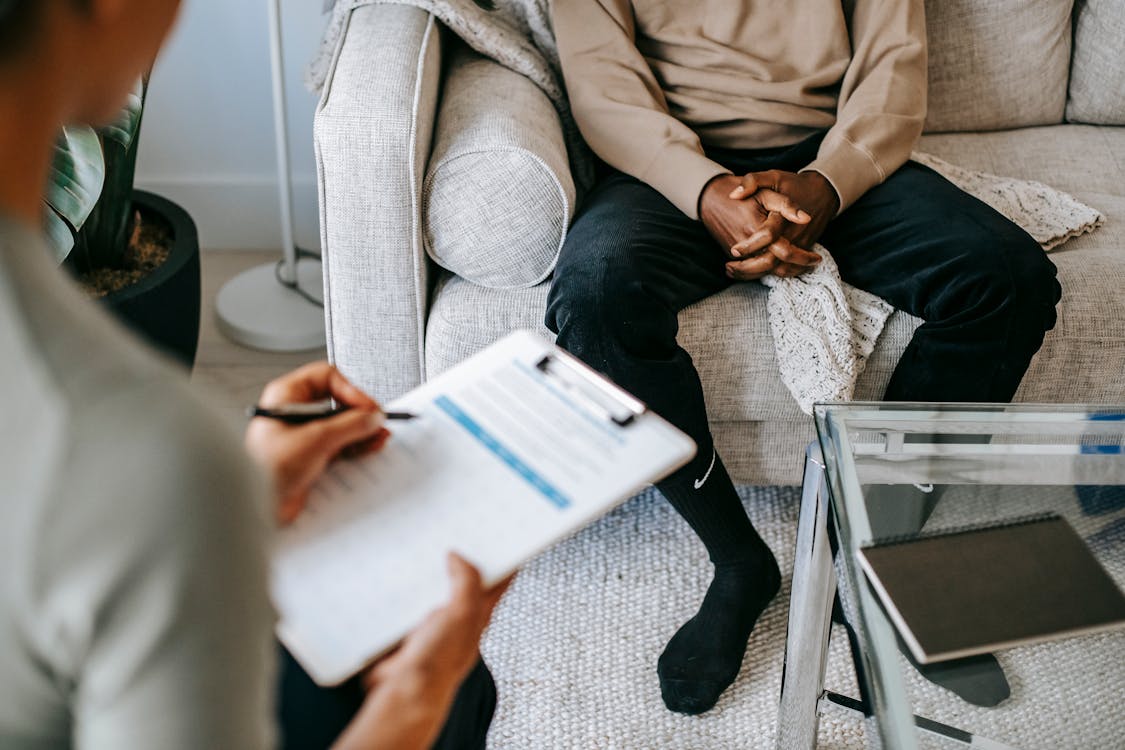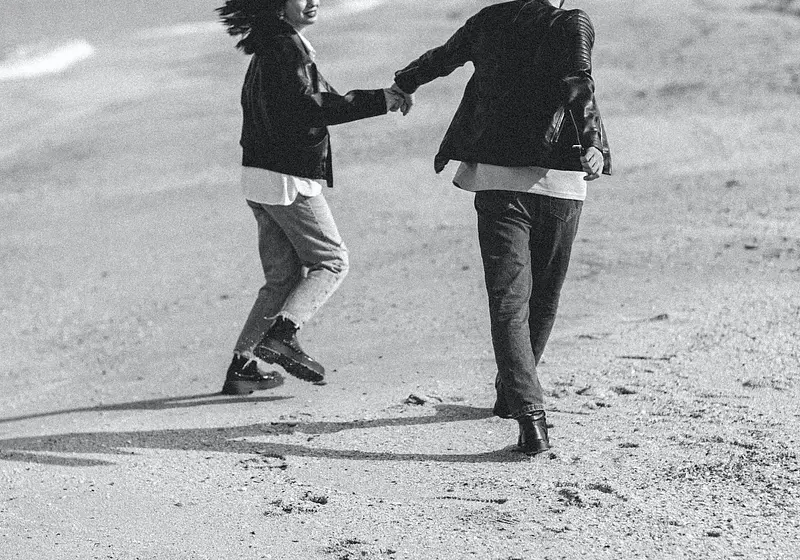Friendships
Our ancestors, surviving in the wild, relied on friendships for survival. According to the Baylor College of Medicine, “Close, loving friendships evolved among early human hunter-gatherers to promote survival within gender-separated social environments.” People with friendships could access crucial resources and support. Fast forward to today, and we still can't live without them!

Min An from Pexels
A friend is your go-to person, your confidant. If you need to talk to someone, you turn to a friend. If you want to take a step back from everything, you ask a friend to hang out.
Friends are the people you enjoy the good moments of life with, and they're the people you mourn with; the ones you can trust and cry with. Nowadays, we need friends for mental support, joy, and valuable connections. These green flags are signs that your friendship is like no other!
Green Flags
They respect your boundaries. Jokingly, friends can take your stuff, and they can tease you, but to what extent? Boundaries aren't solely physical, but emotional as well.
For example, if someone is upset about their dog dying, making fun of it crosses an emotional boundary. Ask yourself this: Where do I draw the line between a joke and an insult? A lot of good friendships consist of lighthearted teasing, but it's a red flag when you're tired and don't feel like yourself around your friend. Distance yourself when these boundaries are ignored.

Luke Barky from Pexels
They're there for you when you're at your lowest. Real friends are there for you through thick and thin. On the other hand, fake friends are in it for the clout.
Ask yourself this: “If I were to be stuck in the rain without a ride, would this person pick me up if they could?” A real friend would, as friendships are a priority. There's a difference between making time for someone and freeing time for someone, and true friends check in on you even if they're busy.
They accept you for who you are, not for who they want you to be. A friendship should be formed based on who you are personally. Friends may initially form over sports and academic competitions, but the ensuing friendship should arise from personalities.
For instance, a sense of humor, shared interests, and contrasting traits. Additionally, friends will defend you for who you are and for what you mean to them.

Helena Lopes from Pexels
They tell the truth, but not in a bad way. Constructive criticism is important in any friendship. Real friends look out for each other and don't let each other feel embarrassed.
The realest ones are those who tell us nicely if there's something stuck in our teeth or on our shirt. Constructive criticism isn't solely about small things; it could be about the bigger things. For instance, if you notice something different in your friend, don't confront them, but don't sugarcoat it. Real friends improve each other.
They aren't the subject of conversation every time. People love to talk about themselves, and that's reasonable. You should share what's going on in your life. If someone doesn't show interest in your conversations and makes everything about them, it's mentally draining.

Cottonbro Studio from Pexels
They aren't embarrassed to show vulnerability, and they offer emotional support. Men can cry, women can cry; it's human to cry. Unfortunately, some friends don't show interest and leave you when you need them the most.
It's a friend's duty to be there and offer emotional support. But fake friends are insidious, slowly draining you mentally. When you notice the following red flags, rethink your friendship.
Red Flags
They ghost you. We all need some “me time.” Unfortunately, some people lie about this, leading to months of no contact for no reason. Half a year goes by with no attempt of contact, and then you see them in person.
Suddenly, they rush to hug you, and pretend that nothing happened. If someone can't take 5 minutes to say ‘hello,’ forget it.
The friendship is built on hate and gossip. We all gossip, but there's a difference between gossiping and venting. Venting is criticizing someone's actions, while gossiping is criticizing the person. If your friend gossips all the time, they probably gossip about you too.

Cottonbro Studio from Pexels
They always need something. Some friends abuse your generosity, draining your energy by always needing something. They always need to talk to you about their problems., or they always need a dollar or food. These types of friends are "energy vampires" who constantly turn a smile into a frown.
They downplay your issues. These snakes adopt the “victim” mentality when you're vulnerable, turning your struggles into a competition. A friend's duty is to listen without judgment. It shouldn't be about who had it worse, but rather the issue.

Alex Green from Pexels
They treat you differently around their other friends. If you feel mistreated or embarrassed around your friend's other groups, they may be befriending you for amusement and humiliation. So the question remains: How do I escape if I notice these warnings?
Tips to Escape a Toxic Friendship
Remember - don't be nice, be kind. Being kind involves doing things to help others, while being nice involves pleasing everyone even if it takes a toll on you. For example, driving someone home so they arrive safe speaks much louder than a cliched compliment about someone's bracelet or “vintage skirt.” Remember Regina from “Mean Girls?”

Daniel Xavier from Pexels
Approach rather than confront. If there's a sudden behavioral change, it's a sign they're going through something. If you let them know you're there for them, they'll open up.
Distance yourself. While risky, distancing yourself is safer than damaging your mental health. Be discreet to reduce fallout.
Instead of replying or messaging with interest, reduce your reply length. Don't laugh when they laugh, and appear bored. Every few days, eat lunch with a different group of people, or sit with a new group of people. If they ask, it's for an assignment. Hopefully, they'll get bored and want to move to a new friend.
Meet new people. Don't put your eggs in one basket. Start joining new clubs and try different things!
There are tons of people out there, so don't let this experience ruin everything. After a toxic friendship, you may lose a sense of self-worth, but you are worth enough for others.

Phil Nguyen from Pexels
Conclusion
As you rebuild yourself, be your own friend. The worst thing you can do is fracture the friendship within yourself. Don't blame yourself for befriending a “vampire.” Love yourself by doing things you couldn't do previously. You only live once, so don't waste it on a silly “vampire.”


















